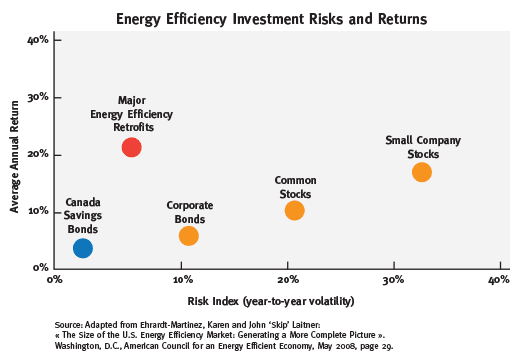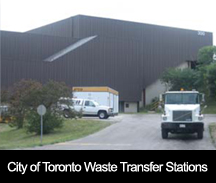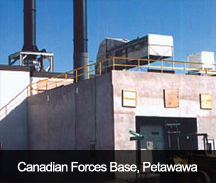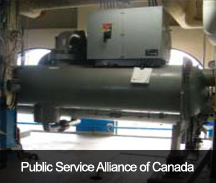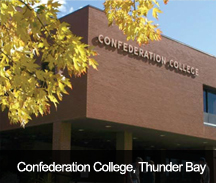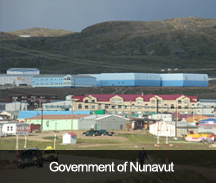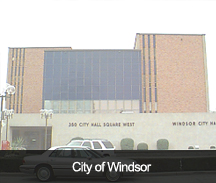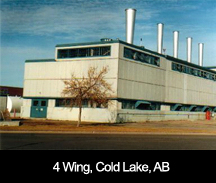FAQ
1. Are Energy Performance Contracts more expensive than conventional construction contracts?
No. The Canadian government has used these contracts to upgrade about one third of their buildings and have concluded that they are not necessarily more expensive than the traditional process. As shown in the table below, that is because the traditional “piecemeal” process requires additional staff to manage the multiple contracts. They also found that traditional processes save less energy.
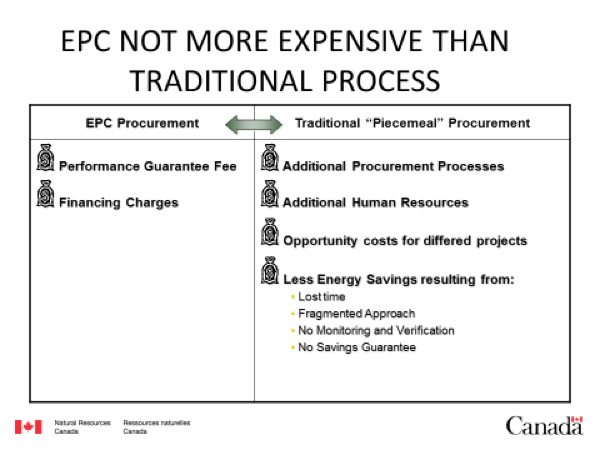
2. What happens if the savings are not realized?
In the very rare situation where the actual savings achieved are less than those that are guaranteed in the Energy Savings Performance Contract, the Energy Service Company (ESCO) pays the difference.
3. Will I have to cease operations during the project?
Absolutely not. ESCOs have 25 years’ experience in doing these projects while facilities continue normal operations.
4. Will ESCOs only cherry pick the most cost effective components?
No. In fact, because they prefer bigger projects to smaller ones, they typically are pushing clients to include more rather than fewer components in a project. The federal government estimated that ESCO projects typically result in 20% additional energy savings.
5. Are Energy Service Performance Contracts complicated?
No. There are 25 years of successful experience with Request for Qualifications (RFQ), Request for Proposals (RFP), model contracts, evaluation protocols, etc. ESAC can put you in touch with facility managers from organizations similar to yours that can share with you what they do.
6. Are energy efficiency projects good investments?
Absolutely. As noted in the graphic below, energy efficiency investments have a very high return and a very low risk compared to most other investments.
